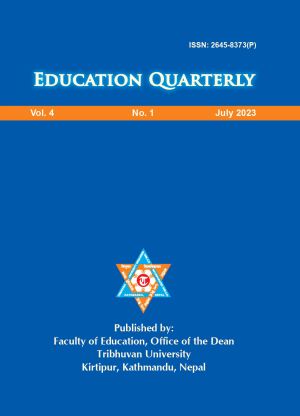Strategies for Coping with Teaching and Learning Difficulties During COVID-19
DOI:
https://doi.org/10.3126/jeqtu.v4i1.57245Keywords:
Availability, disadvantaged, facilitation, governance, inclusiveAbstract
Finding the reality of the strategies for coping, t teaching, and learning difficulties during the COVID-19 pandemic situation is the primary objective of this study. The study employed a mixed-method research design and drew on primary and secondary data sources. Surveys, field observations, personal interviews with students, teachers, parents, and focus group discussions were used to collect primary data. Two secondary schools involved in online teaching-learning were purposively selected from Lalbandi Municipality in the Sarlahi district of Madhesh Pradesh. Secondary data were collected from policy documents, empirical reports, theoretical literature, and e-resources. The finding shows that schools were not ready for the situations like COVID-19 lockdown. After the lockdown, schools made managerial and policy changes to provide an alternative mode of learning to students in the form of online classes. Schools followed the Student Learning Facilitation Guidelines to some extent and provided training to faculties on how to operate online classes. Those students who had no access to online classes tended to study in groups with teachers, friends, and families. The schools provided textbooks to the students. Thus, this paper concludes the important role local government played in providing effective alternative solutions to online classes rather than leaving students on their own.




